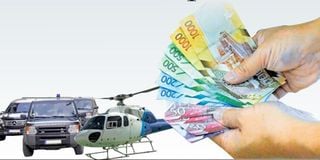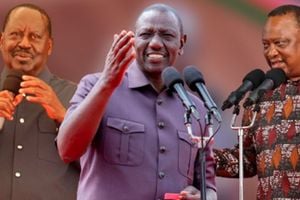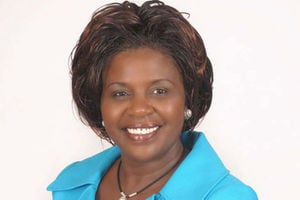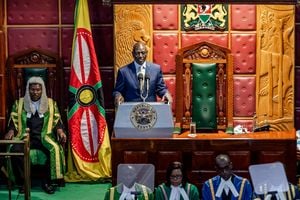Helicopter, election materials boom comes to an end

For months, the Kenyan airspace had been filled with helicopters as politicians undertook whirlwind campaigns to woo voters ahead of the General Election tomorrow.
For months, the Kenyan airspace had been filled with helicopters as politicians undertook whirlwind campaigns to woo voters ahead of the General Election tomorrow.
With their high convenience in terms of speed and manoeuvrability, the choppers became a hotcake during the campaigns, presenting grand business opportunities for owners, hiring firms, oil marketers, and service and spare parts firms.
Several politicians own choppers, which they lease out or use during the election period.
But with the official closure of the campaign window at 6pm on Saturday by the Independent Electoral and Boundaries Commission (IEBC), the boom has ended, with estimations that the campaign teams sunk billions into the helicopter hire business.
A spot check yesterday around Nairobi’s Wilson Airport, which hosts the bulk of helicopter firms and hangars, revealed minimal activities.
For months until yesterday, the airport was a hive of activity, with back-to-back take-offs and landings by choppers.
“The blitz is over for now with the end of campaigns,” an official at Wilson Airport told the Nation on condition of anonymity because he is not authorised to speak on behalf of the Kenya Airports Authority.
Market estimates put the cost of hiring a helicopter in Kenya at about Sh150,000 for an hour, giving a glimpse into the amount of business done during the campaign period.
Official data by the Kenya Civil Aviation Authority showed that new helicopter registrations rose by 41 last year as politicians prepared for the campaign period.
The number of registered planes increased by 47, excluding those owned by the National Police Service and the Kenya Defence Forces, to 782 last year.
Apart from choppers, roadshow truck owners and dealers in merchandise such as flyers, T-shirts and posters also had a boom during the campaigns.
Enquiries showed that it costs about Sh100,000 a day to hire a large roadshow truck fitted with quality public address systems.
“Business has been good over the months, especially in Nairobi where competition for various seats is quite tight this time round,” Peter Njoroge, a driver of such trucks, said.
Producers of merchandise including T-shirts, aprons, caps, scarves, flyers and posters also registered a boom over the months as politicians wooed voters.
Kenyan election campaigns have become a high-spending exercise for candidates, translating into big business for service and merchandise suppliers.
Last August, MPs rejected a proposal by the IEBC seeking to cap presidential campaign spending at Sh4.4 billion and political party budgets at Sh17.7 billion.
Currently, a presidential candidate is allowed to spend up to a maximum of Sh 5.2 billion, while governors, senators, and female representatives get a limit of Sh433 million.






